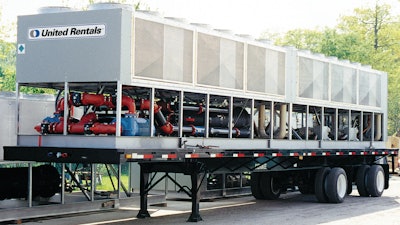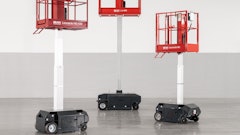
United Rentals released their financial results for the third quarter of 2021. Rental revenue for the quarter was $2.277 billion, showing an increase of 22.4 percent year-over-year, which reflects the impact of COVID-19 in the third quarter of 2020 and the continuing recovery of activity.
Total revenue was $2.596 billion in the third quarter of 2021, compared to $2.187 billion in 2020, an 18.7-percent hike. Fleet productivity also increased 13.5 percent year-over-year, due to better fleet absorption.
Used equipment sales in the quarter decreased 8 percent year-over-year, generating $183 million of proceeds compared to $199 million for the same period last year. The gross margin increases were primarily due to stronger pricing, which rose sequentially for the fourth consecutive quarter. Used equipment proceeds in the quarter were 60 percent of original equipment cost (OEC), compared to 51 percent in Q3 2020.
Matthew Flannery, CEO of United Rentals, said, “We were very pleased with our third quarter performance, with rental results coming in ahead of expectations as our team serviced our customers in a safe and efficient manner through the busiest part of our year. Importantly, the momentum we’ve experienced from the broad-based recovery of our end-markets supports our raising full year guidance for both total revenue and adjusted EBITDA. Our update also includes an increase to rental capex, reflecting incremental fleet we plan to purchase in the fourth quarter as we look to support growth next year.”
Flannery continued, “While early in our planning process, virtually all key indicators point to a sustained recovery. At this same time, the industry has remained disciplined and our strategic partnerships with key suppliers will benefit the company as we invest in fleet to support our customers. Combined, this should position us to deliver strong growth, improved margins, and attractive returns in 2022.”
The general rentals segment had a 17.6 percent year-over-year increase in rental revenue to $1.636 billion for the quarter. Rental gross margin increased to 39.7 percent, due to a reduction in depreciation expense as a percentage of revenue, partially offset by a higher bonus accrual, the impact of the 2020 insurance recoveries, and increases in certain operating expenses, including delivery costs, as a percentage of revenue.
The specialty rentals segment rental revenue increased 36.4 percent year-over-year, including the impact of the recent acquisition of General Finance Corporation, to $641 million for the quarter. On a pro forma basis, including the standalone pre-acquisition revenues of General Finance, specialty rental revenue increased 23 percent.





















